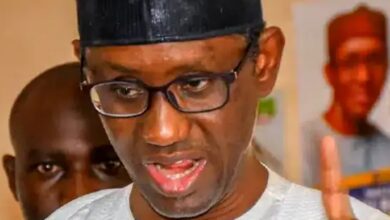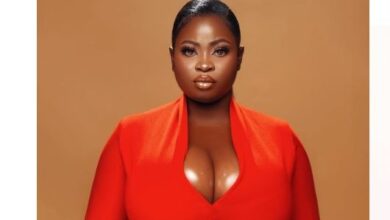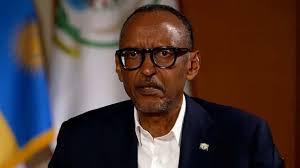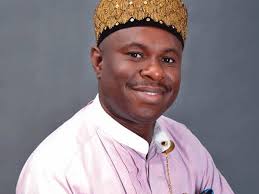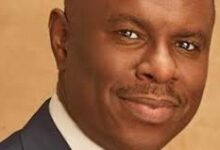Governors who can’t pay N70,000 minimum wage should resign – ADC National chair
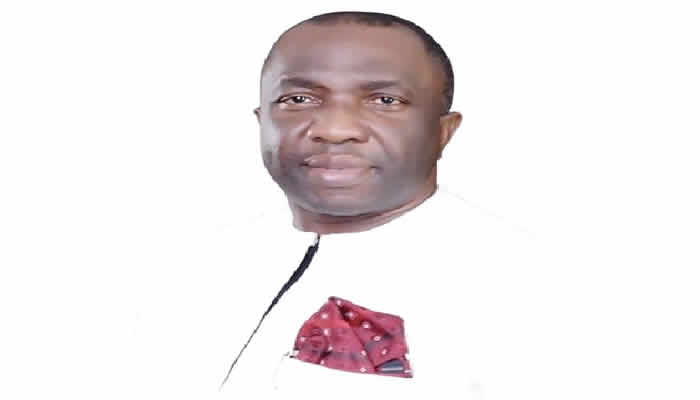
In this interview with Ayoola Olasupo, the National Chairman of the African Democratic Congress, Ralph Nwosu, sheds light on internal challenges facing the party, pressing national issues and key political, economic, and social hurdles stifling Nigeria’s progress
Before the APC removed Senator Ali Ndume as the Chief Whip of the Senate, you were one of the stakeholders who criticised his remarks on President Bola Tinubu’s administration. Do you believe this is a productive stance for an opposition party?
I never criticised him. He has caused significant harm, even during President Goodluck Jonathan’s tenure. The character of the APC in this country is dangerous. They claim to fight corruption but end up becoming part of it themselves. If you join the APC, all your sins are forgiven, regardless of the party you originally come from.
Another example is that if you speak against the APC or their government, you are ostracised. If you lack commendable character, as long as you are in the APC, it’s not an issue.
For instance, if you stole N50bn, just join them, and your sin would be forgiven. Now, if you criticise the APC, the president, or Godswill Akpabio, you will be ostracised. This is dangerous for our country’s development and democracy.
Can anything stop that?
People in the executive chambers are exploiting the masses and have devised a palliative economy, aware that they have imposed hunger and fear on the people. From the outset, they claimed they would eradicate poverty, hunger, and address the needs of the people, yet they planned a governance model reliant on palliatives. Unfortunately, we lack strong political parties or institutions on which the government can build.
Instead, we have leaders who are heavy-handed and believe they are in control because they have the money and think they can silence everyone.
This mindset is detrimental to nation-building. These leaders corrupt the youth—the supposed leaders of tomorrow—by promoting values of corruption, luxury, and a belief that they are above the law.
If we allow young people to adopt these values, what kind of future will we have? What kind of future will we create if they are schooled in these destructive principles? That’s why we are still fighting in politics—to make a difference. By God’s grace, if we succeed, people will understand what integrity, hard work, and resilience can achieve, even in the midst of confusion.
A lawmaker from your party, Leke Abejide, recently expressed dissatisfaction, stating that the African Democratic Congress had become uninhabitable, and even hinted at his potential defection. Does the National Working Committee have any specific plans in place to address his grievances and prevent this defection?
The legal framework is in place, and the ADC is a constitutionally recognised political party. Our moral code is grounded in ethics, integrity, and values, which sets us apart from others.
When people join the ADC, we make this clear to them, and that’s why our platform has a global reach—because we are a learning organisation.
The ecosystem, including us, is polluted; it is vast and complicated. People often don’t take us seriously because they approach us only when they want to contest elections.
We issue them certificates because ours is a transformational model of leadership, symbolised by the handshake. This handshake should clearly signify our commitment to serious leadership.
I have worked with the ADC for almost 20 years, and we make sacrifices because we believe Nigeria must improve. This is not the case for 90 per cent of those in other political parties, so it takes time for some to change.
We have established a committee, and any defaulting member will be referred to it; this is normal. We don’t believe that joining the ADC absolves anyone of past misdeeds.
That’s why, when people come to the party, they may eventually relent. Our committee, chaired by Dr Bamidele Ajadi, will carry out this responsibility effectively.
Has the committee reached out to Leke Abejide concerning his defection notice?
We’ve established the committee, and we will allow them to do their work. I trust they will handle it effectively. Abejide is a thorough person. Although we have state executive members, we prioritise quality contributions and membership. Even in years when we had no members, we pushed forward with our registration through the volume of votes. Eventually, Nigerians will desire the ADC, and when they do, we must be ready to deliver.
Why are we here? Why do we have Africa as the first word in our name? If Africa makes up 20 per cent of the global population and contributes more than 20 per cent of the world’s resources, we can’t afford to plan in isolation.
Africa, democratic governance, and the elevation of democracy will be central to our leadership. The handshake, our symbol, represents building collaborations, friendships, and partnerships.
That’s the only way to be a nation-building party. Within our party, we don’t have the APC DNA. You’ll see young men and women working hard, pursuing an agenda that can elevate Nigeria to the next level. By God’s grace and through the hard work of our people, we will take power.
By 2027, we will be 20 years old as a party. When we registered, we thought it would be a sprint—maybe within four years, we would take over the villa because the country was in bad shape. Now, it has taken us 20 years. Nigerians are yearning for liberation, and we will deliver it.
The nationwide protest against hardship was widely rejected by various stakeholders and government agencies. Why did you support it?
I visit markets, hospitals, and other places where I see the suffering firsthand. The death rate has more than tripled, and mortuaries are full. Many patients can’t afford their hospital bills, and if you check Nigeria’s mortality rate, it has increased. When this happens, and people can’t speak out, and the government tries to silence them, then I question President Bola Tinubu’s administration.
Why are they more interested in giving money to agencies to discourage protests instead of addressing the issues?
He was given the country to govern—something he has wanted since 1993. We were there with MKO Abiola, even with Tinubu, when we were planning this. For 25 years, Tinubu controlled Lagos State, planning and strategising. But where is his blueprint? He saw the challenges before emerging, so he should stop complaining and get to work.
The money he’s spending to prevent protests could have been used for meaningful progress.
They didn’t want the protests because they hold politicians accountable. They met with traditional rulers to stop the protests, but ask these rulers how many more people they are now burying in their territories compared to five years ago. If they ignore the people’s suffering, they will face consequences. Since Tinubu removed the subsidy, he said we would see results in three to six months, but it’s been over a year, and nothing has changed.
But the Federal Government has promised there will be light at the end of the tunnel.
Will there be light in one, two, or three years? How many people will be patient until then? Don’t be surprised if the agenda is to keep the masses hungry to increase the death rate because it makes no sense.
Nigeria has no reason to be poor. Our oil and coal can generate revenue. If you explore the country’s nooks and crannies, you’ll find solid and liquid minerals everywhere that hold significant value.
Is there hope that a national dialogue could provide a lasting solution to the current economic hardship?
National dialogue is always beneficial, but the most crucial aspect is the participants. If you appoint individuals solely interested in making money, it will devolve into another jamboree. For example, if you pay participants N50m for three months of dialogue, they’ll focus on the money rather than finding a solution. Dialogue is critical, but it must be conducted correctly.
Some stakeholders suggest that regional government is the solution to the restructuring Nigerians are yearning for. Do you agree?
Not at all. The current political culture is rife with corruption, which is why nothing is being achieved at the national level, and corruption is rampant at the state level too. We need to critique this because state governments act like an octopus, strangling LGs. The structure I support empowers local governments because they are the ones at the grassroots.
While financial autonomy was granted to LGs, governors still exert control over them. They conduct their elections and decide who wins. A structure that creates opportunities at the grassroots is what I advocate for because if LGs function properly, development will accelerate.
There’s a view that the current government lacks the political will to lift Nigerians out of hardship and is instead worsening it. What’s your opinion on that?
President Bola Tinubu has long desired to be president, and circumstances have favoured him. In 1999, he became the governor of Lagos State and challenged the status quo. He has maintained control of the state since then, and now he’s in the villa.
He has had 20 to 30 years to plan for this moment, so it doesn’t reflect well on him that there is no clear strategy. The president trusts his associates, whom he has worked with for over 20 years. I wish them luck.
This government has implemented several palliative measures to alleviate hardship. Are these initiatives not successful enough, or are they not what the country needs right now?
In my view, governance through palliatives is fundamentally flawed. When you govern through palliatives, it indicates a deeper issue. Why delegate it to state governments that may not distribute it fairly, only for them to claim they gave a certain amount of garri each day?
The new minimum wage of N70,000 has been approved by President Tinubu, but some governors continue to complain that their states are not financially buoyant to support such a wage. What is your advice to those state governments?
State governors that can’t pay the new minimum wage to their workers should resign, as they were not forced into their positions. I know that some of these state governments are capable of paying N100,000. I commend Governor Godwin Obaseki for stating that he will ensure he pays the highest minimum wage among all the governors. However, it is one thing to say this and another to implement it. After the removal of the fuel subsidy, people are suffering, and there are disruptive elements within the two main parties.
That’s why we are saying that the ADC must take control. While I commend Obaseki for his statement, all the governors should have realised that since May 29, 2023, when the subsidy was removed, they need to increase the minimum wage.
When we campaigned for our candidates, we stated that he would lift our young people out of hardship and elevate them beyond mediocrity on a global scale. Even with the N70,000 approved, sustaining oneself is difficult. For instance, in Abuja, if you commute to Nyanya, you will spend N2,000 on transport to and from work. If you stay out for more than eight hours, you will also need at least N1,000 for lunch. Multiply N3,000 by 25 working days in a month, and that totals N75,000. This excludes the money you need to save for your children’s school fees, healthcare, rent, and so on. Even with the N70,000 wage, we are not enjoying the benefits of the Nigerian government. A living wage would at least make a difference.
Can you elaborate on your previous statement that those in government are trying to stifle viable opposition?
Yes, they are stifling opposition, even within their own ranks. Consider what happened to Senator Ali Ndume. You can imagine what this same government will begin to do to other parties. Are they open to criticism from other parties? What they are practising is authoritarianism, which dampens morale. When everyone stops talking, what kind of image are they creating? Even if they intend to create a banana republic, they should understand that it cannot survive because the economy has already failed. At this point, those in government are simply hoping that some form of magic will emerge to save them.
You have served as the National Chairman of the ADC for over 10 years. Is this duration permitted by the party’s constitution, or has there been a lack of interest from others in the position?
During the last elections, we had some internal issues. People came to contest in the election, but within a few months, they started causing problems. Once the election failed, they disappeared, running back to the PDP or APC because they were only seeking positions. They don’t want to build anything. Chief Obafemi Awolowo, as a leader of the Action Group, spent time building with endurance and resilience, but modern politicians are different. When you invite them to join your party, the first thing they ask is what position they will get. In other parties, when you join, they offer you a position, and when you attend meetings, they give you money. Here, no one will give you anything. It’s only during the general election that they come around, wanting to be at the centre of power, and that’s the problem we face.
If you’ve invested in building a party you believe will change Nigeria, would you leave when others abandon it?
The National Chairman of a party should receive a salary and have a convoy of vehicles, but in the ADC, the party hasn’t even provided a vehicle for the office of the chairman. I’ve spent my own resources to keep the party alive. People come to contest elections and leave, but those with a vision for the party will not abandon it. If I had left the party, opportunists would have come in just to gain power. I am one of those who have invested their money in the cause, but most Nigerians are only after positions. When you see someone who has built something by themselves, they are less likely to leave. If you’re committed to building a party, dealing with challenges, and creating leadership, it will eventually succeed. I have taken my party through several elections, and I have never asked anyone for money before they could contest. Instead, if I see a good candidate, I approach them because of their track record and tell them that if they campaign well, they can win.
Based on your insights, is there a strategy in place to forge a robust coalition with other political parties ahead of the upcoming general election, aimed at mounting greater pressure on the ruling party in 2027?
The ADC is like a missionary enterprise. We all have a vision and are sacrificing our time and energy. I have dedicated over 20 years of my life and resources to this cause. During the 2019 elections, we gained attention, and Chief Olusegun Obasanjo and some former governors joined us. However, because we didn’t win as expected, within three months after the election, they returned to the PDP. Most politicians are opportunists who only come to the party when it benefits them, but I have invested over 20 years of my life here, and that means something.
If you remember, a few months ago, the ADC held a political summit at the AREWA House, where over 12 political parties participated. We started discussions about forming a coalition, and we are continuing those talks. I believe that in 2027, it will be a breakthrough year for Nigeria.
Many stakeholders from the South-East have suggested that the release of the leader of the outlawed Indigenous People of Biafra, Nnamdi Kanu, will put an end to the insecurity and other issues in the region. What are your thoughts on this?
I believe holding Nnamdi Kanu in custody in the first place was wrong, and people have the right to protest. We are pleading with President Tinubu to free Kanu. The government should allow Nigerians to express their views.
Every Monday, business activities in the South-East are halted due to the sit-at-home protests, yet the government has not considered the financial losses in places like Asaba, Aba, Nnewi, and Enugu.
This is a loss not only for the South-East but for Nigeria as a whole, as it affects the country’s Gross Domestic Product.
However, they don’t seem to care. People want to protest, and the federal government is spending money on traditional rituals like Oro to disrupt those movements, which shows how disconnected they are from the people’s struggles.

